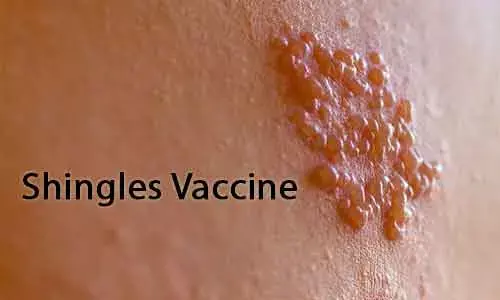- Home
- Medical news & Guidelines
- Anesthesiology
- Cardiology and CTVS
- Critical Care
- Dentistry
- Dermatology
- Diabetes and Endocrinology
- ENT
- Gastroenterology
- Medicine
- Nephrology
- Neurology
- Obstretics-Gynaecology
- Oncology
- Ophthalmology
- Orthopaedics
- Pediatrics-Neonatology
- Psychiatry
- Pulmonology
- Radiology
- Surgery
- Urology
- Laboratory Medicine
- Diet
- Nursing
- Paramedical
- Physiotherapy
- Health news
- Fact Check
- Bone Health Fact Check
- Brain Health Fact Check
- Cancer Related Fact Check
- Child Care Fact Check
- Dental and oral health fact check
- Diabetes and metabolic health fact check
- Diet and Nutrition Fact Check
- Eye and ENT Care Fact Check
- Fitness fact check
- Gut health fact check
- Heart health fact check
- Kidney health fact check
- Medical education fact check
- Men's health fact check
- Respiratory fact check
- Skin and hair care fact check
- Vaccine and Immunization fact check
- Women's health fact check
- AYUSH
- State News
- Andaman and Nicobar Islands
- Andhra Pradesh
- Arunachal Pradesh
- Assam
- Bihar
- Chandigarh
- Chattisgarh
- Dadra and Nagar Haveli
- Daman and Diu
- Delhi
- Goa
- Gujarat
- Haryana
- Himachal Pradesh
- Jammu & Kashmir
- Jharkhand
- Karnataka
- Kerala
- Ladakh
- Lakshadweep
- Madhya Pradesh
- Maharashtra
- Manipur
- Meghalaya
- Mizoram
- Nagaland
- Odisha
- Puducherry
- Punjab
- Rajasthan
- Sikkim
- Tamil Nadu
- Telangana
- Tripura
- Uttar Pradesh
- Uttrakhand
- West Bengal
- Medical Education
- Industry
Shingles vaccine may decrease risk of stroke in elderly

DALLAS, Feb. 12, 2020 -- Shingles is a reactivation of the chicken pox virus and typically occurs after age 50. Shingles causes painful skin blisters and with increasing age can lead to serious complications. It may also increase the risk of stroke.
Researchers have found that Zoster Vaccine Live, one type of shingles vaccination, may prevent some older adults from having a stroke.The preliminary research findings shall be presented at the American Stroke Association's International Stroke Conference 2020 - Feb. 19-21 in Los Angeles.
"One in three people who have had chickenpox develop shingles in their lifetime," said Quanhe Yang, Ph.D., lead study author and senior scientist at the Centers for Disease Control and Prevention (CDC) in Atlanta, Georgia. "The Zoster Vaccine Live helps to prevent shingles and reduces the risk for shingles by about 51%. But its effect declines with increased age, about 64% in people 60-69 years, about 41% for ages 70-79 years and about 18% in those 80 years or older."
To help determine if the shingles vaccine reduces the risk of stroke, Yang and colleagues reviewed the Medicare health records of more than one million Medicare fee-for-service beneficiaries age 66 or older who had no history of stroke and who were vaccinated with the Zoster Vaccine Live between 2008 and 2014, and followed them for an average of almost four years. That group was matched with the same number of Medicare fee-for-service beneficiaries who did not receive the shingles vaccine with the same four-year follow-up. To examine the effect of the vaccine on risk of stroke, researchers controlled for age, gender, race, medications and co-existing health conditions.
Researchers found:
Receiving the shingles vaccine lowered the risk of stroke by about 16%, lowered the risk of ischemic (clot-caused) stroke by about 18% and lowered the risk of hemorrhagic (bleeding) stroke by about 12%;
The vaccine's protection was strongest among people ages 66 to 79 years; and
Among those under the age of 80 years, the shingles vaccine reduced the risk of stroke by nearly 20% and in those older than 80, reduced the risk by about 10%.
"The reason for increased risk of stroke after a shingles infection may be due to inflammation caused by the virus," according to Yang.
"Approximately one million people in the United States get shingles each year, yet there is a vaccine to help prevent it," said Yang. "Our study results may encourage people ages 50 and older to follow the recommendation and get vaccinated against shingles. You are reducing the risk of shingles, and at the same time you may be reducing your risk of stroke."
This study was conducted when the only shingles vaccine was Zoster Vaccine Live (available since 2006). The newest shingles vaccine, Adjuvanted, Non-Live Recombinant Shingles Vaccine (available since 2017), confers even greater protection and is now the preferred vaccine recommended by the CDC's Advisory Committee on Immunization Practices. Two doses of Adjuvanted, Non-Live Recombinant Shingles Vaccine is more than 90% effective at preventing shingles and is recommended for adults age 50 and older.
Future studies are needed to confirm the link between Zoster Vaccine Live and stroke and to determine any association between Adjuvanted, Non-Live Recombinant Shingles Vaccine and risk for stroke.
For further reference log on to:
Dr Kamal Kant Kohli-MBBS, DTCD- a chest specialist with more than 30 years of practice and a flair for writing clinical articles, Dr Kamal Kant Kohli joined Medical Dialogues as a Chief Editor of Medical News. Besides writing articles, as an editor, he proofreads and verifies all the medical content published on Medical Dialogues including those coming from journals, studies,medical conferences,guidelines etc. Email: drkohli@medicaldialogues.in. Contact no. 011-43720751


